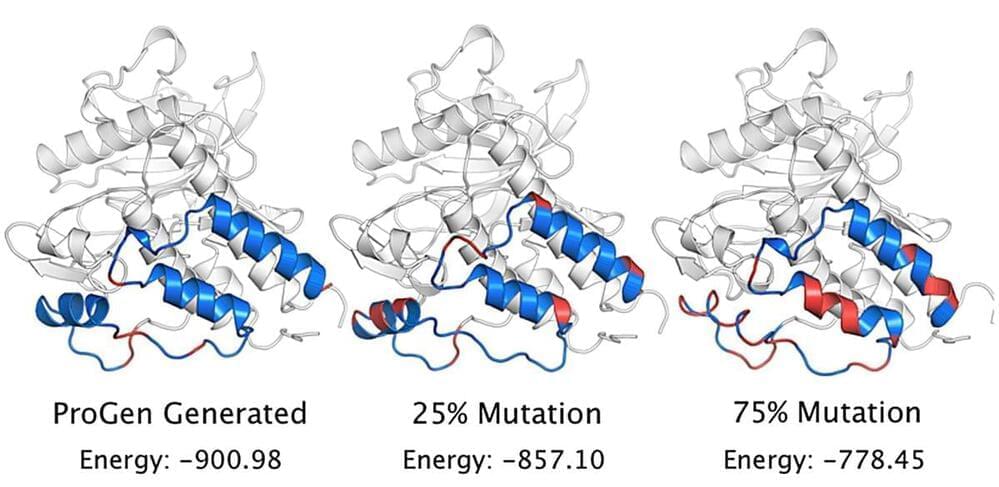Artificial intelligence and the soul.
Dropbox is a free service that lets you bring your photos, docs, and videos anywhere and share them easily. Never email yourself a file again!


JWST is good at spotting very faint, very distant objects like ancient galaxies, because it views the universe in infrared light, whose wavelengths are slightly longer than the ones our unaided eyes can see. Light from distant objects, which are moving even farther away from us as the universe expands, gets stretched into those longer wavelengths.
Although this is the most recent image the JWST team has processed and released to the public, it was one of the first images the telescope actually took. During the early summer of 2022, astronomers and engineers were firing up Webb’s instruments and getting them ready to do real science observations. This stunning image of spiral galaxy LEDA 2,046,648 was part of the process of commissioning JWST’s Near-Infrared Imager and Slitless Spectrograph (which was recently out of order for two weeks thanks to a run-in with a cosmic ray).
The godfather of vaccines discussing the future of vaccinology — dr. stanley plotkin, MD.
Dr. Stanley Plotkin, MD (https://en.wikipedia.org/wiki/Stanley_Plotkin), is an American physician, scientist, and scholar, who in the 1960s, while working at Wistar Institute in Philadelphia, played a pivotal role in discovery of a vaccine against rubella virus (which is now used worldwide as a key component of the MMR vaccine), and has worked extensively on the development and application of a wide range of other vaccines including those for polio, rabies, varicella, rotavirus and cytomegalovirus (https://www.epiv.eu/).
Dr. Plotkin graduated from New York University in 1952 and obtained a medical degree at Downstate Medical Center in Brooklyn. He was a resident in pediatrics at the Children’s Hospital of Philadelphia and at the Hospital for Sick Children in London.
In 1957, Dr. Plotkin served in the Epidemic Intelligence Service of the Centers for Disease Control (CDC) of the U.S. Public Health Service for three years and then served as a member of Wistar’s active research faculty from 1960 to 1991.
Today, in addition to his emeritus appointment at Wistar, Dr. Plotkin is emeritus professor of Pediatrics at the University of Pennsylvania (https://www.med.upenn.edu/apps/faculty/index.php/g275/p1554), and works as a consultant advising vaccine manufacturers, biotechnology firms, non-profits and governments.


Ready for AI’s future?
This movie explores the top 10 AI technologies that will change our lives.
These technologies might transform industries and redefine how we interact with the world, from self-driving cars to smart cities.
These technologies create serious ethical problems that must be addressed. Future AI technology will astound and inform you.
Don’t forget to like, comment and subscribe as this supports this channel💕💕
Follow my socials for posts and updates.
As technology continues to advance at an exponential rate, it’s hard to ignore the nagging feeling that we may be heading toward a dystopian future. In this video, we’ll be examining the potential dangers of artificial intelligence and machine learning; how they could lead us down a dark path if left unchecked. From the displacement of human workers to the loss of privacy and control, the repercussions of our reliance on technology are far-reaching and potentially disastrous.
In today’s video we look at The Dark Side of Artificial Intelligence: Dystopian Future Inevitable?…Keep watching to see artificial intelligence and the bad side of artificial intelligence and the dystopian future and artificial intelligence tutorial and the artificial intelligence movie and andrew yang artificial intelligence and the artificial general intelligence and artificial intelligence podcast and the artificial intelligence 2019 and artificial intelligence 2021and the artificial intelligence: mankind’s last invention and what is artificial intelligence and is artificial intelligence dangerous and how does artificial intelligence work and the futureSubscribe for Artificial Intelligence, Data Science, and Crypto. Inspired by Tech Vision, Moconomy, and Digital Engine. Inspired by Get RICH in the A.I. Revolution (2023)Inspired by Why Artists are Fed Up with AI Art. Inspired by What ChatGPT Could Mean for the Future of Artificial IntelligenceInspired by The Real Danger Of ChatGPTInspired by End Game — Technology | Dystopian Future | Machine Learning | Artificial IntelligenceAlso check out: https://youtu.be/POFaQNNQVLMOn Technology Titan we will go through Artificial Intelligence, Crypto, and SpaceX. Stay tuned for the latest Data Science, Tech, and Stocks. Click here to subscribe: bit.ly/3WvpXbT

Neutrinos are one of the most abundant particles in our universe, but they are notoriously difficult to detect and study: they don’t have an electrical charge and have nearly no mass. They are often referred to as “ghost particles” because they rarely interact with atoms.
But because they are so abundant, they play a large role in helping scientists answer fundamental questions about the universe.
In groundbreaking research described in Nature —led by researchers from the University of Rochester—scientists from the international collaboration MINERvA have, for the first time, used a beam of neutrinos at the Fermi National Accelerator Laboratory, or Fermilab, to investigate the structure of protons.

